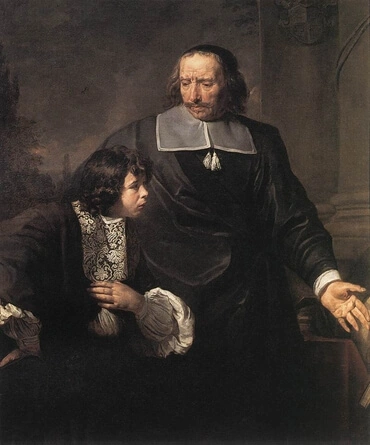764. "For she says in her heart, 'I sit as queen and am not a widow, and will not see grief.'" This symbolically means that this is the lot of those Roman Catholics, because owing to their elation of heart over their dominion, and exultation of spirit over their riches, they possess the confidence and conviction that they will dominate forever and defend themselves, and that they can never lose what they have.
To say in her heart means, symbolically, to possess confidence owing to their elation of heart over their dominion, and a conviction owing to their exultation of spirit over their riches. Her saying, "I sit as queen," means symbolically that they will have dominion, in this case forever, because the declaration follows, "I will not see grief." Her saying, "I am not a widow," means symbolically that they will defend themselves. A widow, being without a man, symbolizes someone without protection. The terms queen and widow are used, and not king or man, because the reference is to Babylon as the church. And her saying, "I will not see grief," means symbolically that they can never lose these two, dominion and riches. That from this arises their grief after death may be seen just above in no. 763.
[2] Almost the same statements are made of Babylon in Isaiah:
...you shall no longer be called The Lady of Kingdoms... You said (in your heart), "I shall be a lady forever," ...saying in your heart, "I am, and there is no one else besides me; I shall not sit as a widow, nor shall I know the loss of children." But these two things shall come to you... in one day: the loss of children, and widowhood. They shall come upon you... because of the multitude of your sorceries, and the great abundance of your enchantments. You have trusted in your wickedness. You have said, "No one sees me." Your wisdom... led you astray, when you have said in your heart, "I am, and there is no one else besides me." Therefore... devastation shall come upon you suddenly... (Isaiah 47:5, 7-11)
A widow in the Word means someone without protection, for in the spiritual sense a widow symbolizes someone who possesses goodness and no truth, for a man symbolizes truth, and his wife goodness. Thus a widow symbolizes goodness without truth, and goodness without truth lacks protection, for it is truth that protects goodness. A widow has this symbolism in the Word where one is mentioned, as in Isaiah 9:14-15, 17; 10:1-2; Malachi 3:5; Psalms 68:5; 146:7-9; Exodus 22:21-24; Deuteronomy 10:18; 27:19; Matthew 23:14; Luke 4:25; 20:47.







